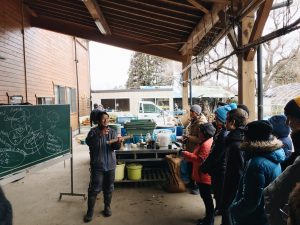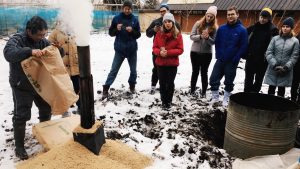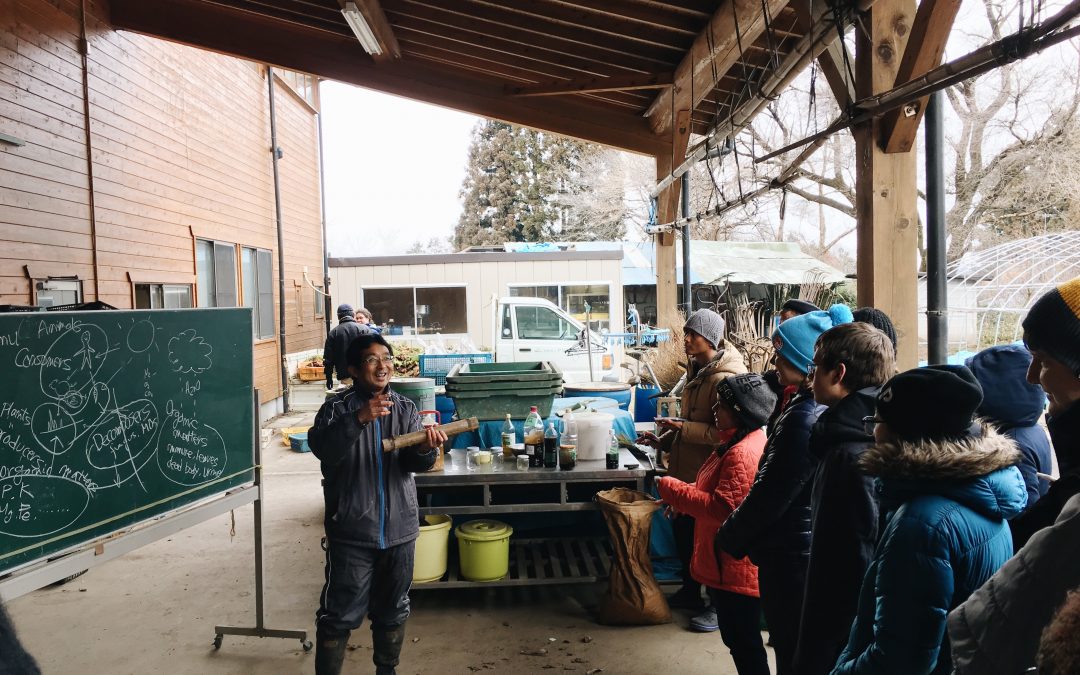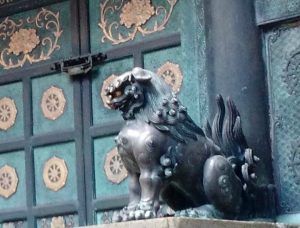On our first full day at ARI, Osamu-san, a staff member and organic farmer, described the need for good soil and the importance of following the law of nature. As a class, we discussed the food chain and the significance of decomposers, organic matter, and inorganic matter for soil health. Osamu-san talked about how humus also needs nutrients and microorganisms to be fertile. While many industrialized and large scale farms depend on chemical fertilizers, machinery, and pesticides in order to achieve maximum crop yield, these practices are degrading to the environment and affect every aspect of the food chain, including ourselves.
Organic farming at ARI emphasizes utilizing what is around and what is produced by nature. Osamu-san reiterated this idea on the first day and again on the second day by providing us with examples that are used on the farm. One of them included a demonstration on how white mold, a natural microorganism which can be used as fertilizer, is made. He packed rice into a bamboo shoot, took us to a more forested area of the farm, and placed it into a hole, while describing that natural processes between the soil and rice would produce the mold in a two week time period, which ARI would use to enrich the soil around other areas of the farm. Another example was the creation of biochar made by burning rice husks, which could also be used to enhance the soil. Additionally, he mentioned the use of a crushed eggshells and vinegar mixture which acts as a calcium booster for the soil, and a chili and liquor blend that can be sprayed on crops as a natural pesticide. These practices all utilize materials that come from the farm, making ARI’s agriculture ~90% self sustainable.
Evidently, there is a huge contrast between American industrialized agriculture and Japanese organic agriculture. There is also a big difference between what is considered organic in the United States (GMO and pesticide free) versus ARI’s definition of organic (full reliance on natural materials). Although ARI’s definition of organic agriculture may be difficult for many large scale farms –both American and Japanese — to adopt, I believe the idea of agricultural self sufficiency is one that should be more seriously considered for environmental benefits without the automatic need to turn to manmade materials.
Everything needed for agriculture is around us, and we just need to learn to look around.

Osamu-san’s demonstration of how white mold can grow on rice to be used as a natural microorganism fertilizer

Creation of biochar

